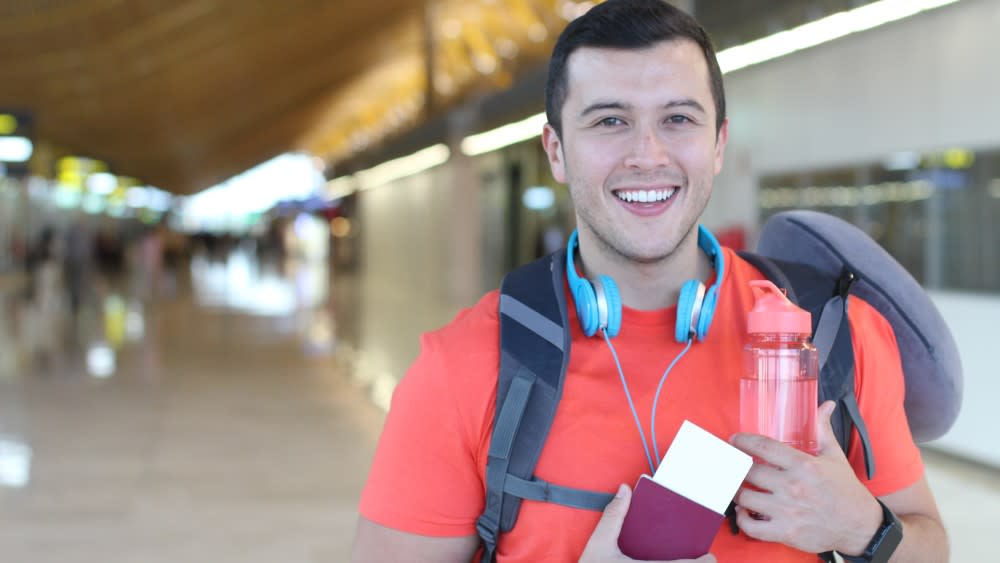Foreign students wishing to study in the United States on an F1 visa must do so in order to have access to the best academic programs and resources available. The one catch is that, like other travel documents, an F1 visa has an expiration date. If you want to return to the US after an overseas vacation or continue your school, you must be familiar with the F1 student visa renewal process.
This comprehensive, SEO-optimized guide will teach you all the ins and outs of renewing your F1 visa, including when to do it, what documents you’ll need, how to interview, potential roadblocks, and answers to frequently asked questions.

Can you tell me about an F1 student visa?
The F1 nonimmigrant visa is available to foreign people who want to attend an authorized American school, college, seminary, or conservatory full-time. For the course of their studies and for a grace period after graduation, it allows international students to legitimately reside in the United States.
The visa is separate from the F1 visa status and the I-20 form, but it grants entry to the US. You may remain in the US after your visa has expired so long as your I-20 is valid and you are still enrolled as a student. But if your F1 visa expires while you’re abroad, you can’t reenter the US until you renew it.
When Is the Appropriate Time to Renew My F1 Visa?
An extension of your F1 student visa should be considered if:
- You will need to renew your F1 visa before your next trip back to the US, since it has expired or will expire soon.
- You are planning to leave the nation and will need a valid visa to return.
- You are either starting a new degree program or switching between various academic tracks (from undergraduate to graduate, for instance).
Note: You will not be able to renew your visa while you are in the US. A visit to an overseas U.S. embassy or consulate is necessary for visa renewal.
An In-Depth Guide to Renewing Your F1 Student Visa
The process of renewing your F1 visa is lengthy and complex. By meticulously adhering to these suggestions, you may enhance the likelihood of a successful renewal.
Step 1: Contact Your DSO to Obtain a Replacement I-20 First
Prior to filing your application for a visa renewal, you are need to get an updated Form I-20 from your Designated School Official (DSO). See to it that the form accurately reflects your present degree program, anticipated completion date, and academic program.
Some words of wisdom:
- The I-20 must have accurate information.
- Pay the SEVIS fee and keep track of it.
Step 2: If required, make the SEVIS fee payment
If your SEVIS record has been closed or if you are starting a new course of study, you may be required to pay the I-901 SEVIS fee again.
Visit www.fmjfee.com to see your SEVIS status and pay your fees.
Step 3: Complete the DS-160 Form
You must submit the DS-160 online nonimmigrant visa application form in order to renew any U.S. visa. Your personal information, travel and visa records, and academic credentials are all part of it.
You may find the webpage at https://ceac.state.gov/CEAC.
After submitting the DS-160:
- Save the confirmation page, which includes the barcode.
- Bring a printed copy to your visa interview.
Step 4: Schedule a Visa Interview
Visa renewal interviews may need an appointment at a U.S. embassy or consulate, however this varies by country. Check the local embassy’s website for specific instructions and appointment availability.
Some students may be eligible to skip the interview altogether if:
- A similar kind of visa is being extended.
- Their visa has been valid for less than half a year.
- They meet other criteria related to status and age as well.
Step 5: Pay the Visa Application Fee
A standard F1 visa application will cost $185 in the year 2024. Since the accepted means of payment vary by nation, it is best to consult the website of the U.S. consulate or embassy in your intended application location.
Tip: Keep each receipt as a record.
Step 6: Gather Required Documents
To renew an F1 visa, the following documents are often required:
- Passport valid for at least six months beyond your planned return date
- Form I-20 signed by your DSO
- DS-160 confirmation page
- Visa application fee receipt
- I-901 SEVIS fee receipt
- Documentation of continuous enrollment (transcripts, class schedules)
- Proof of financial aid (e.g., sponsor letters, bank statements)
- Previous I-20s and visa endorsements (if applicable)
- Passport-sized photo (as per U.S. visa regulations)
Additional paperwork may be required based on your unique circumstances or the requirements of the embassy.
Converging on the Interview for the Extension of an F1 Visa
If you are required to attend an interview, it is imperative that you come prepared. The immigration officer’s primary concern is establishing that you are an actual student with the intention of returning home when your program concludes.
Common F1 visa interview questions:
- Why exactly are you going to school in the US?
- What is your major and why did you choose it?
- How do you plan to cover the costs of your education?
- What are your plans after you finish school?
- Why did you choose this specific college?
Improving Your Interview Skills:
- Succinctly state the truth.
- Make your point clearly and confidently.
- Dress for success.
- Bring a well-structured folder with all required paperwork.
What is the Typical Processing Time for Renewing an F1 Visa?
The amount of work at the embassy and in your nation determine how long it takes to renew your visa. General timeline:
- Instantaneous processing of DS-160 upon submission
- Interview scheduling: days or weeks
- Visa processing: 3–7 business days post-interview
- Passport return: 1–2 weeks by courier or pickup
Expert Tip: Start the process of renewing your F1 visa four to six weeks before your planned travel date to avoid any disruptions.
Can the Embassy Deny Your F1 Visa Application?
Renewing an F1 visa is not guaranteed. Denial reasons may include:
- Poor academic performance or no improvement
- Insufficient financial resources
- Suspicious travel history or unclear answers
- F1 visa violations (e.g., unauthorized work)
- Immigration intent concerns
If your application is denied, you will receive a written explanation and may appeal or reapply with stronger evidence.
Helpful Hints for Renewal of an F1 Student Visa
- Begin promptly: Don’t wait until the last minute.
- Maintain status: Stay enrolled full-time.
- Renew before departure: Avoid travel with an expired visa.
- Trust official sources: Refer to your school’s international office or travel.state.gov.
- Tell the truth: Dishonesty may lead to denial or ineligibility.
- Keep copies: Maintain a copy of every document.
What Are the Key Differences Between an Extension and a Renewal?
- You must renew your visa if you leave the country and want to return after your visa stamp expires.
- You can extend your student status via I-20 updates without renewing your visa if staying in the US.
Discussion Questions and Their Answers
Is it possible to renew my F1 visa while still being in the US? No. You must apply for renewal at a U.S. embassy or consulate abroad.
Can I get a fresh I-20 if I want to renew my visa? Yes. Ensure your I-20 is up-to-date before applying.
When can I expect to get my F1 visa renewed? You can renew it unlimited times if you remain eligible and in good standing.
Is it possible to renew my visa in Mexico or Canada? Yes, but it’s risky. If denied, you may struggle to reenter the U.S. without a new visa. This is called “Third Country National” processing.
Conclusion
Getting your F1 student visa renewed is essential if you want to continue studying in the US and traveling internationally. Though the process may seem overwhelming, preparation significantly increases your success rate. Stay informed, consult your school’s international office, and rely on official resources.
